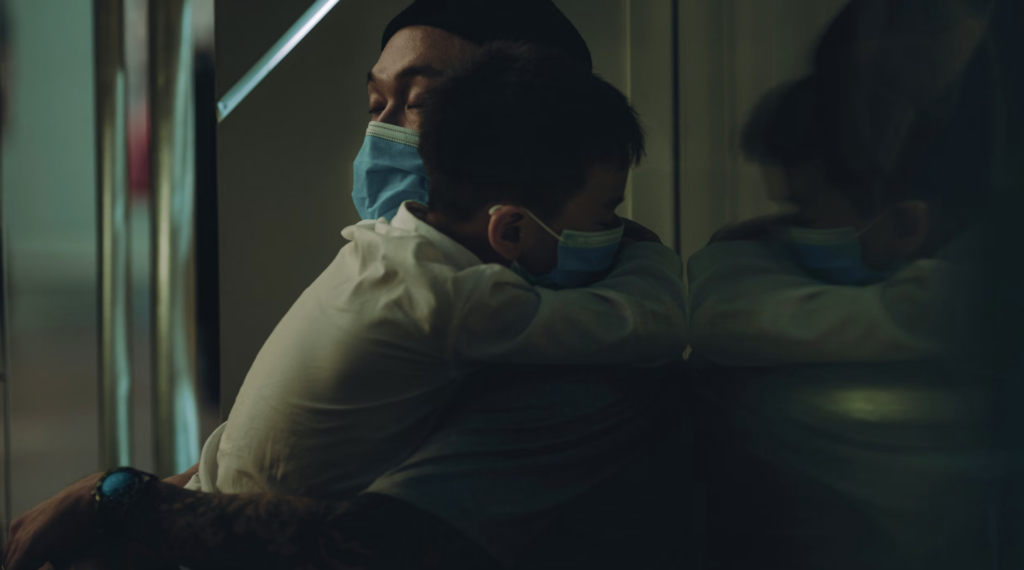
Managing Care
If you or your child has been mostly healthy to this point, you likely haven’t had much experience working with doctors and the medical system – let alone assembling a multidisciplinary team.
Getting to appointments, juggling appointment times, coordination of specialists, facilitating communication – all while sick and / or caring for a sick loved one can feel almost impossible. It can be very challenging when you or your child is struggling to fully recover, but symptoms seem to come-and-go, and they are hard to describe. We hope to provide some information that will hopefully make this process simpler.
- Your initial appointment
- Accommodations
- Symptom journals
- Communicating limitations
- Keeping track of it all
Is this Long Covid?
Post-viral illness can develop despite the severity of your covid infection. Many who develop Long Covid had a mild acute COVID-19 infection, and no known pre-existing conditions. During or shortly after their Covid infection, they began to develop additional symptoms:
• Severe exhaustion
• Headaches
• Shortness of breath
• Feeling lightheaded or dizzy
• Heart palpitations
• Body pain
• Body tingling (pins and needles)
• Wheezing
• Rashes
• Hives
• Itching
• Red eyes
• General sense of being “unwell”
A negative Covid test, or lack of positive confirmation, does NOT mean that a person is not experiencing post-viral illness due to the lack of available tests, high rate of false-negative results, and asymptomatic cases.
Your Initial Appointment
According to the CDC, Long Covid can be diagnosed by your primary care physician after 4 (four) weeks of illness. There is no one test to confirm Long Covid, but some of the more common Post-Covid conditions can be diagnosed with testing.
Unfortunately, some providers are still not familiar with post-viral illness and common conditions that develop, so we recommend showing up prepared for the conversation.
Appointment Print-outs
We recommend printing reputable resources to take to your appointments.
FROM THE NIH RECOVER PEDIATRIC STUDY
Tip Sheet: Talking about Long Covid with your child’s doctor
FROM THE CDC
Patient History and Physical Exam >
Assessment and Testing >
Management of Post-COVID Conditions >
FROM THE WORLD HEALTH ORGANIZATION
Coronavirus disease (COVID-19): Post COVID-19 condition >
FROM THE AAP
Post-COVID-19 Conditions in Children and Adolescents >
Common Post-Covid Conditions
“Patients with post-COVID conditions may share some of the symptoms that occur in patients who experience myalgic encephalomyelitis/chronic fatigue syndrome, fibromyalgia, post-treatment Lyme disease syndrome, dysautonomia, and mast cell activation syndrome. “
“Symptom management approaches that have been helpful for these disorders may also benefit some patients with post-COVID conditions (e.g., activity management (pacing) for post-exertional malaise).”
– Centers for Disease Control and Prevention
For Kids
The American Academy of Pediatrics (AAP) recommends that ALL children and teens who have testing positive for COVID-19, regardless of the severity, have a follow-up conversation with their doctors. Additionally, they state that people who test positive should not exercise until they are cleared by a physician.
In-person visit recommended for:
• Patients with moderate or severe acute infection
( >4 days of fever, chills, body pain, lethargy.)
– AND / OR –
• Patients with lingering symptoms regardless of acute infection severity
Telehealth visit recommended for:
• Asymptomatic or mild cases that no longer show signs or symptoms
Appointment Accommodations
People with Long Covid & Post-Covid conditions may have barriers that make it extremely difficult to have doctors appointments. Depending on your specific needs there may be ways to accommodate you or your loved one, that you have never thought of. Many hospitals have an accommodations specialist or patient advocate that can help you navigate receiving care.
You may as the office directly for accommodations or talk to an office manager about your difficulties surrounding doctors appointments to see if they know of any ways to help.
Telehealth
Physically attend a doctors appointments may be difficult or impossible for someone with Long Covid, depending on their symptoms. Different states, insurance companies, and doctor offices have various rules surrounding their in-person vs. telehealth appointments.
Some doctors will agree to do a telehealth appointment for people who have been seen more recently within their health system. Other doctors require meeting in-person for the first appointment only, to make sure they can do a throughout physical exam. Some patients have been successful booking telehealth appointments with providers who are typically not open to the idea, after they explain their current physical limitations.
Cognitive Impairment
If you are struggling with cognitive impairment like brain fog besides preparing for your appointments, there are other ways to help you keep everything straight. If you are unable to bring a friend or family member to your appointment there are other ways to help you both remember or better understand your conversation with your doctor.
- Take notes during the appointment.
- Ask for a few minutes alone before the end of the appointment to digest the new information so that you can ask meaningful questions.
- Voice or video record your appointment.
- Request a detailed written recap at the time of an appointment.
Mobility Difficulties
Like hospitals, doctors offices usually have a push wheelchair for those who need them and are willing to have someone meet you at your vehicle if needed.
Symptom & Activity Journal
Symptoms fluctuate and sometime are triggered by an activity – with this in mind, keeping a symptom & activity journal can help you better identify symptoms leading up to your appointment. This is especially helpful for identifying PEM, or Post Exertional Malaise. PEM is abnormal physiological response to activity that causes a worsening of symptoms. This response can be to even minor exertion and delayed by. hours to days after the activity and lasting for days, or even months.
RECORDING TIPS:
- Aim to be fact driven and as objective as possible.
- Look at cause & effect. What makes symptoms better, what makes them worse?
- Use measurements when you can (Frequency, severity, duration, etc.)
- Review and look for trends prior to your appointment so that it is fresh in your mind
EXAMPLES:
“When my child runs and jumps to play, they complain of being too tired and needing a break after 5 minutes – due to their body being tired and their legs hurting.”
“When I fold laundry, after 2 towels I feel short of breath, pain in my neck, and my arms feel heavy.”
Example Symptom & Activity Journal >
Communicating Limitations
It can help your doctors better understand the severity of symptoms by talking about new limitations. Take some time to think about the ways symptoms have forced you or your loved one to modify the ways you go about daily living.
Here are some questionnaires that can help you quantify the experience:
Online Quality of Life Calculator >
Keeping track of it all
Some ideas for keeping it all in order:
- Create a folder or binder for medical records and ask for “full & complete medical records” to be mailed to you after each appointment. (This can save you a big headache from having to request all records from various places.)
- Keep a document listing all of your doctors, their specialities & and their contact information up-to-date
- Create “one-pager” of your relevant medical history, diagnosis, and medications to take to your appointments
COMMUNITY SUPPORT
Long Covid Families is happy to support the community in any way we can. Join our Facebook Support Group, follow us on social media, or contact us, anytime.
SUPPORT THE CAUSE
Donations are tax deducible and every little bit helps us pay for the essential tools we use for advocacy & awareness. Donate to Long Covid Families.

